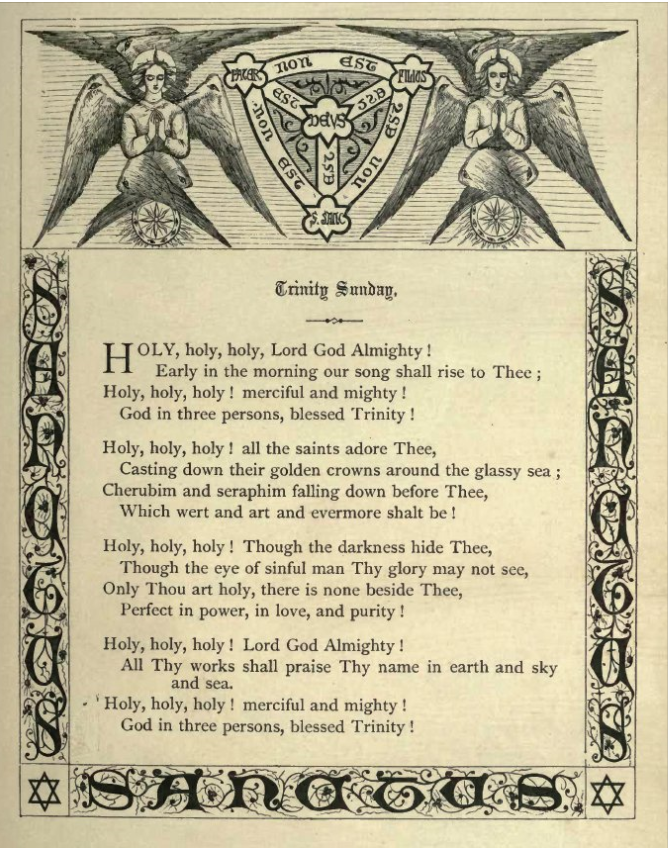A scene from The Canterbury Psalter (12th century)
Blog
Power, Love, Purity (Trinitarian Appropriation)

“Perfect in power, love, and purity.” This line from the hymn Holy, Holy, Holy is a great example of the theological move called trinitarian appropriation.
Trinitarian appropriation is when you take something common the three persons & ascribe it to one person in particular. You can use an action (like election, redemption, or sanctification) or an attribute (like, well, power, love, or purity) belonging to the whole Trinity.
You can never use it exclusively, as if you were denying that it belonged also to the full Trinity (or to the same divine essence held in common by the 3). But you can say that it is an especially helpful or resonant term for bringing insight into that one person.
Christians are fluent at doing this in creedal habits of thought like calling the Father the creator, the Son the redeemer, & the Spirit the sanctifier. Under cross-examination, few Christians would make the error of thinking these ascriptions exclude the other persons.
In fact, that second movement of thought is wonderful: When you move out from “we call the Father the maker” to “but all things were made through the Son, and the Spirit was brooding over it all.” You get the best of both (trinitarian) worlds depending on your focal point.
In Holy, Holy, Holy, the third stanza ends with a threefold recital of divine attributes, attributes that belong to the one God whom “there is none beside.” That God is perfect, and perfect in these three attributes: power, love, purity.
Heber (the author) doesn’t explicitly connect the dots, and you may have sung the hymn often without noticing this. He doesn’t say “the Father is powerful, the Son is loving, the Spirit is pure.” But your awareness is supercharged with triples and Trinity by this point.
The song is literally to the tune of Nicaea! (The name of the hymn tune.) So it’s natural to follow the movement from Father through Son to Spirit as the line descends through power, love, and purity. Father distinctively almighty, Son effectively loving, Spirit of holiness pure.
If this seems too subtle, well, fair enough. One of the keys to trinitarian appropriation is that it is not a master doctrine that runs the show or establishes the foundational categories. It moves in after we know the one God who is indivisible & acts indivisibly.
Start noticing trinitarian appropriation and you’ll see that it’s all over the hymns, the creeds, the Scriptures. It’s even embedded in the Christianese that people of faith talk to each other when they’re not especially trying to theologize. It’s worth seeking fluency in.
About This Blog

Fred Sanders is a theologian who tried to specialize in the doctrine of the Trinity, but found that everything in Christian life and thought is connected to the triune God.


